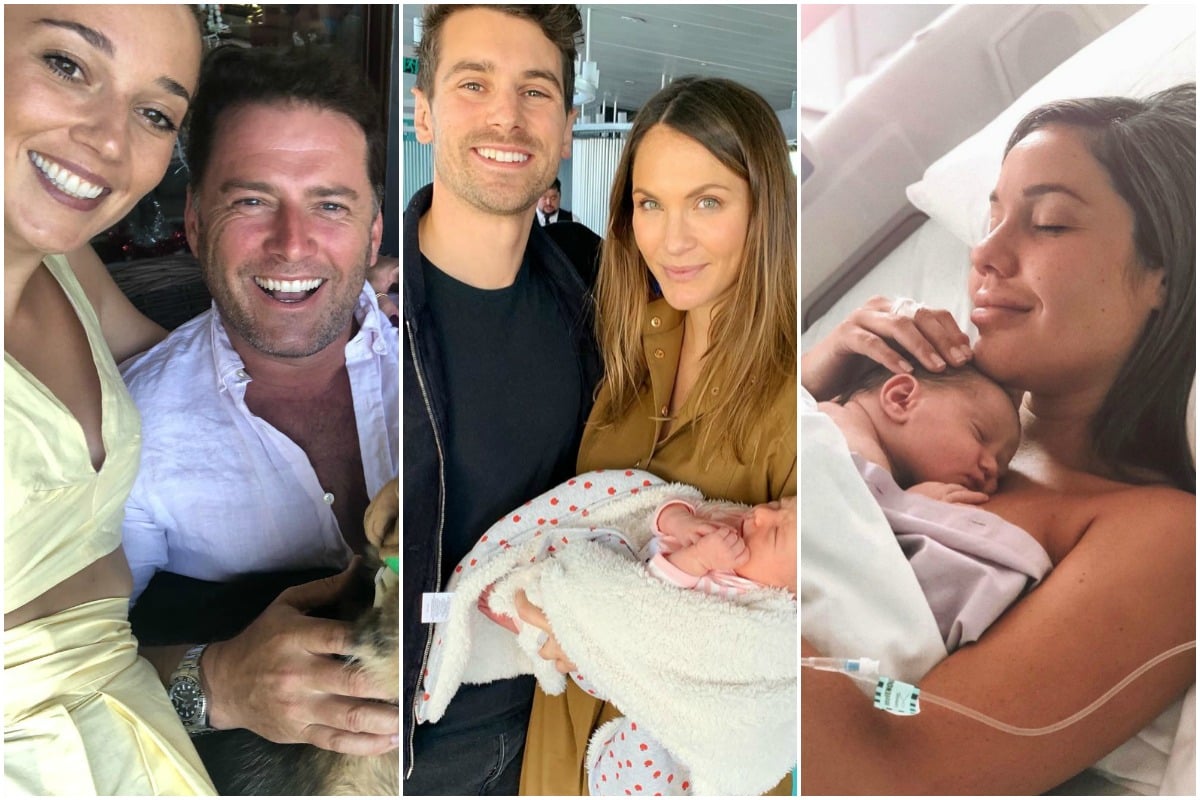
Marlie-Mae, Gracie-Mae, Mila-Mae, Harper May… you may have noticed the trend.
Aussie celebs are giving their baby girls hyphenated names with a sweet, old-fashioned sound. The Bachelor’s Matty J and Laura Byrne went for Marlie-Mae, Bachelor In Paradise’s Simone Ormesher and partner Matt Thorne chose Gracie-Mae, while Married at First Sight’s Davina Rankin and boyfriend Jaxon Manuel decided on Mila-Mae.
And now, Karl Stefanovic and Jasmine Yarbrough have named their first child, Harper May.
View this post on Instagram
So where did this all come from?
Although these names might sound American – think Elly May Clampett from The Beverly Hillbillies – this is actually a huge British trend that seems to be just taking off in Australia.

Top Comments